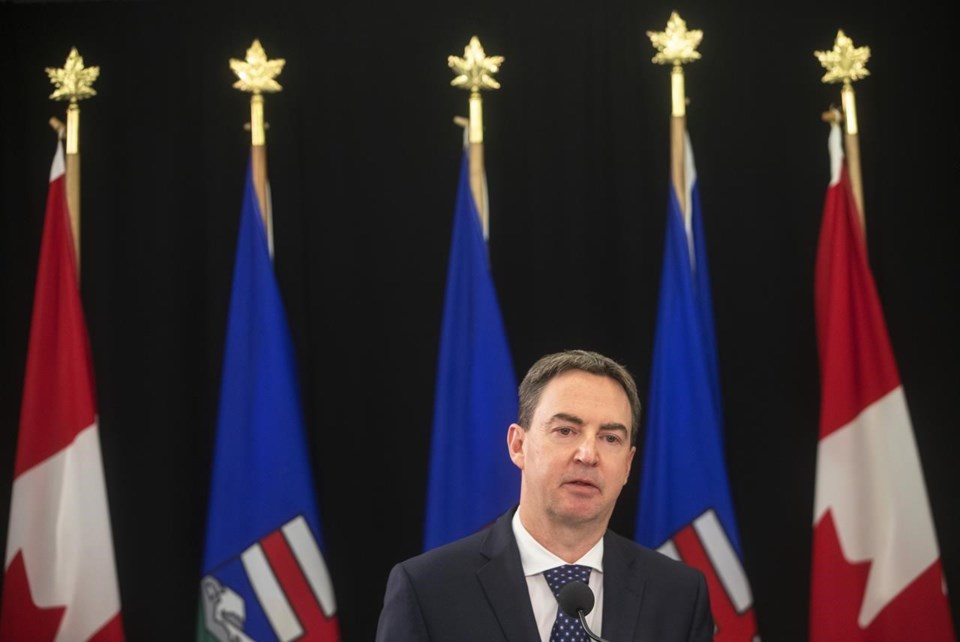EDMONTON — The Alberta government says it is making a pill to treat COVID-19 more accessible by allowing doctors and other health-care workers to prescribe the drug.
Health Minister Jason Copping says positive COVID-19 rapid tests will also be accepted for Paxlovid to be prescribed.
People eligible for the oral medication include unvaccinated people over the age of 55, unvaccinated Indigenous people over 45, adults with some pre-existing health conditions, pregnant women and those who are immunocompromised.
Copping says treatment should begin within five days of the onset of COVID-19 symptoms.
He says more than 1,700 prescriptions for Paxlovid have been written in Alberta since the antiviral drug was approved in Canada in January.
Copping says the transition is expected to be gradual as some physicians become more comfortable prescribing the drug, but people can still access it through Alberta Health Services.
“While Paxlovid can help, it’s not a replacement for vaccination,” Copping said Wednesday during the province’s weekly COVID-19 update.
Copping said the province is seeing signs that COVID-19 transmission is declining.
From April 26 to May 2, the average test positivity rate was 23 per cent, down from 25.9 per cent reported the week before, he said.
The virus level in wastewater is also dropping at most sites, except Calgary.
“Calgary remains high, but we are seeing what may be the beginning of a drop. But it’s too soon to say for sure.”
Copping said the province has seen a slight increase in hospitalizations. There were 1,267 people in hospital with COVID-19 between April 26 to May 2. That is compared to a little more than 1,200 in hospital the week before.
Copping said the number of people in intensive care with the disease has remained about the same over the past month.
Dr. Deena Hinshaw, Alberta's chief medical officer of health, said seasonal influenza has also reached levels not seen in Alberta in the past two years.
“In Alberta, we have had more than 700 cases diagnosed this season, with the vast majority identified in the past two months,” Hinshaw said.
“Of these, 68 people have needed hospital care and three have needed care in the ICU.”
Hinshaw said that there were 69 deaths linked to COVID-19 from April 26 to May 2.
This report by The Canadian Press was first published May 4, 2022.
Daniela Germano, The Canadian Press



